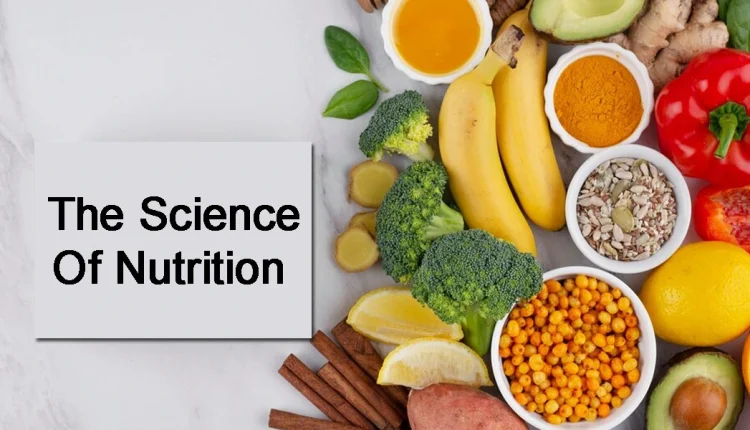Introduction: Beyond Calories and Carbs
Nutrition is a word we toss around daily—printed on labels, embedded in headlines, debated at dinner tables. Yet beneath its ordinary presence lies extraordinary complexity. Nutrition is not merely about counting calories or shunning sugar; it is the invisible architecture that sustains life, shapes our vitality, and silently writes our long-term health story. It connects soil to plate, biology to behavior, and tradition to innovation. To truly understand nutrition is to understand how deeply our bodies, cultures, and choices intertwine.
A Historical Context: How We Learned to Eat
For centuries, humans have grappled with the question of what to eat. Ancient Greeks believed in balance—Hippocrates famously said, “Let food be thy medicine and medicine be thy food.” Medieval diets depended on locality and seasonality, while the Industrial Revolution brought preserved and packaged foods, transforming both access and health outcomes. The 20th century witnessed the birth of nutritional science, uncovering vitamins, minerals, and the biochemical secrets behind our meals.
Today, despite unprecedented knowledge, we find ourselves navigating conflicting advice, industrial food chains, fad diets, and a paradoxical coexistence of obesity and malnutrition. Modern nutrition is not only a science—it is a cultural battleground where tradition, commerce, and wellbeing collide.
The Essentials: Understanding Macronutrients and Micronutrients
At its foundation, good nutrition means supplying the body with what it needs to function optimally.
Macronutrients provide energy and structure:
-
Carbohydrates: The body’s preferred source of quick energy. Found in fruits, vegetables, grains, and legumes, they fuel the brain and muscles.
-
Proteins: Building blocks for muscles, enzymes, and hormones. High-quality sources include fish, poultry, beans, eggs, and nuts.
-
Fats: Essential for cell membranes, hormone production, and nutrient absorption. Healthy fats come from olive oil, avocados, nuts, seeds, and fatty fish.
Micronutrients are the subtle yet critical compounds that drive countless cellular processes:
-
Vitamins: Organic compounds like vitamin C, D, and B12, each vital for immunity, bone health, or energy metabolism.
-
Minerals: Elements like iron, calcium, and zinc that maintain oxygen transport, bone density, and immune function.
A well-balanced diet ensures a harmonious supply of both macro and micronutrients—a delicate dance that keeps illness at bay and energy flowing.
Modern Challenges: Abundance Meets Deficiency
Ironically, in a world where supermarket shelves overflow, nutritional deficiencies persist. Fast food, ultra-processed snacks, and sugar-laden beverages deliver calories but often lack real nourishment.
Common pitfalls include:
-
Hidden Sugars: Sweeteners lurk in sauces, breads, and drinks, quietly adding to obesity and diabetes risks.
-
Empty Calories: Highly refined snacks fill the stomach but starve the body of essential vitamins and fiber.
-
Imbalanced Portions: Oversized servings skew our sense of satiety, fueling weight gain and metabolic disorders.
-
Food Deserts: In many communities, fresh produce remains inaccessible, leading to reliance on packaged, shelf-stable foods.
Modern nutrition demands a return to simplicity: whole foods, mindful eating, and the wisdom of moderation.
The Role of Gut Health: Our Inner Ecosystem
In recent years, science has illuminated the remarkable role of the gut microbiome—a vast community of trillions of bacteria that help digest food, produce vitamins, and regulate the immune system.
Ways to support gut health include:
-
Eating diverse, fiber-rich plants to feed beneficial bacteria
-
Incorporating fermented foods like yogurt, kefir, kimchi, and sauerkraut
-
Reducing overuse of antibiotics when unnecessary
-
Managing stress, which can disrupt gut balance
A nourished gut is increasingly linked to not only digestion but also mood, inflammation, and even mental health—proof that nutrition’s influence extends far beyond the plate.
The Psychology of Eating: Habits and Culture
Food is never just fuel; it is memory, ritual, and emotion. Our upbringing, culture, and environment all shape our eating patterns. Emotional eating, social pressures, and the clever marketing of convenience foods often sabotage good intentions.
Building healthier habits involves:
-
Practicing mindful eating—truly tasting, chewing, and savoring each bite
-
Preparing meals at home to control ingredients and portions
-
Eating with others to reinforce positive habits and cultural connection
-
Being wary of trendy diets that promise quick fixes but rarely deliver lasting change
Nutrition is not a punishment but an invitation to enjoy food consciously and joyfully.
Nutrition Through the Lifespan: One Size Does Not Fit All
Our nutritional needs evolve. An infant’s diet, rich in breast milk or formula, builds immunity and growth. Children need ample nutrients for development, while teenagers require fuel for hormonal shifts and rapid growth.
Adults, meanwhile, balance work, stress, and often a more sedentary lifestyle, making portion control and nutrient density key. For the elderly, maintaining muscle mass, bone health, and sufficient hydration becomes crucial, as does addressing changing taste preferences and digestive capacities.
A Universal Approach: Sustainable Nutrition
Today, nutrition must also answer bigger questions: How do we eat well without harming the planet? Industrial agriculture strains ecosystems, depletes soil, and contributes to climate change.
Sustainable nutrition includes:
-
Choosing more plant-based meals to reduce environmental impact
-
Supporting local farmers and seasonal produce
-
Minimizing food waste by planning meals and storing food wisely
-
Embracing balance over extremes—no single food choice defines us, but patterns do
Healthy bodies and a healthy planet are inextricably linked; one cannot thrive without the other.
Conclusion: Nourishment as a Lifelong Conversation
Nutrition is not static knowledge—it is a dialogue we maintain daily with our bodies and the world around us. It is shaped by science yet flavored by culture, guided by evidence yet enriched by tradition.
To nourish oneself well is an act of quiet rebellion against the noise of quick fixes and processed excess. It is a commitment to listen inward, to respect the Earth, and to honor the remarkable design of the human body.
In the end, the simple truth remains: what we choose to put on our plates, day after day, is among the most powerful choices we ever make—shaping our health, our communities, and the generations yet to come.


Comments are closed.